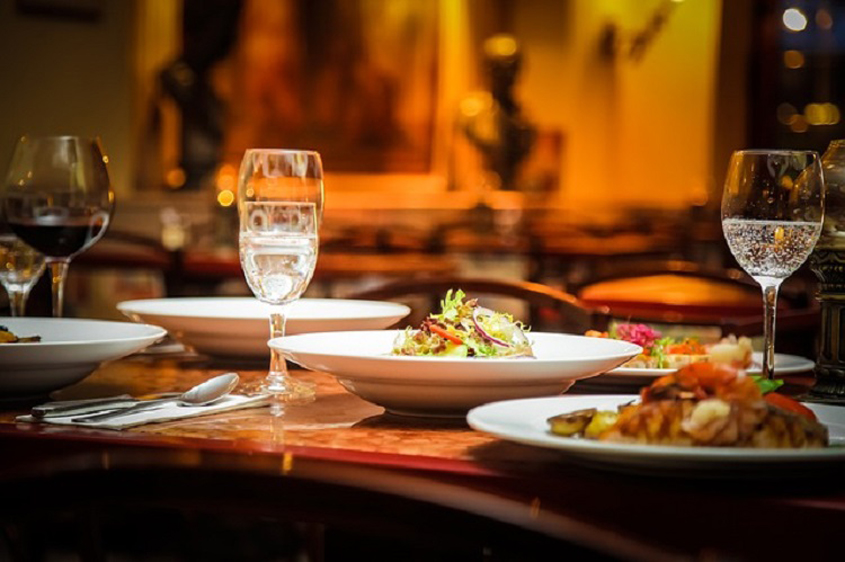Service charge, collected by restaurants is meant for the benefit of employees. However, several restaurants often do not pass on the service charge they collect from their customers to their staff, experts and waiters told The Sunday Guardian. Service charge has been declared optional by the government, which left it to the customers to decide whether, or not, they would pay the charge depending on the quality of service provided. To this the National Restaurant Association of India has said that customers should stop visiting restaurants if they did not want to pay the service charge. In fact, many restaurants in Hauz Khas and the Khan Market area in New Delhi have even put up notices stating that it is mandatory to pay service charge.
While certain incentives are given to waiters in addition to their salaries, this has nothing to do with the amount collected by the restaurateurs in the form of service charge. Many waiters have lodged anonymous complaints with consumer forums about
“We have received several complaints from waiters where they have accused the management of not distributing the amount collected through the bills transparently. This trend is across the country. This is why we represented to the government to abolish the culture of service charge reflected on bills and make it discretionary and voluntary,” Bejon Kumar Misra, founder of Consumer Online Foundation, told The Sunday Guardian.
In July 2015, the Union Ministry of Finance had noted that service charge, which ranges anywhere from 5% to 20%, had absolutely nothing to do with service tax. It is not a government levy, does not go to the government, and can be denied by the diner if he/she is not satisfied with the service.
“Service charge is used for staff welfare activities such as exigencies, emergencies, staff grooming, breakages, shortages, and if there are any leakages, that get paid for from there,” said Riyaaz Amlani, President, National Restaurant Association of India (NRAI), and Chief Executive Officer and Managing Director, Impresario Entertainment & Hospitality Pvt. Ltd.
According to experts, the thumb rule says that 70% of the collected amount should be directly distributed, while the remaining 30% must be used for staff welfare services. However, this rule is invariably flouted by restaurateurs to get their profit chart ticking. As a result, unaware diners end up shelling an unreasonable amount despite being unhappy with the services.
Talking to this newspaper under the condition of anonymity, a waiter at a prominent cafe in Khan Market in central Delhi said, “We never get any share of the service charge. At the end of the month, we are handed over certain incentives in addition to our salaries. These are peanuts when compared to the amount they collect per bill per day.”
A similar trend was noted by another waiter at a family restro bar in Noida. “Even if we get 50% of the share of service charge for the table we wait at, we would be in a better financial state. But we do not have any say in that. We just collect the amount and hand it over to the manager. We often request guests to tip us during Diwali or New Year, but they refuse, saying they have already paid service charge. We cannot argue further,” said a 45-year-old waiter, who did not want to be named.
Experts believe that employees will earn more if tips paid by customers are shared in a transparent manner. Their assertion comes after the Department of Consumer Affairs, in its recent circular on Monday, reiterated that the service charge payment was not mandatory and must be made discretionary. It also asserted that in case the diner was not satisfied, the amount should be waived.
The government clarified earlier in Parliament that the authorities could act against the defaulters who levy a service charge without the knowledge and consent of consumers on charges of indulging in “unfair trade practices”.
Several industry experts have welcomed the move, stating that it is a victory for the consumers.
“In many western countries, the diner pays the tip depending on how satisfied he/she is with the service. This practice pushes the hotel and restaurant employees to engage with the customers, which is missing here. I think this move will impose standards and facilitate healthy competitions,” said Rocky Mohan, founder of the Delhi Gourmet Club.
However, NRAI, which represents independent restaurants and chains, has opposed the Centre’s move, claiming that it has created unnecessary confusion.
“The circular of the government has created unnecessary confusion among the public regarding levy of service charge. Levy of service charge is a totally legal process which has been recognised/ upheld through various judicial pronouncements including the Supreme Court of India,” claimed Riyaaz Amlani.
In England in December 2016, the former Masterchef judge Michel Roux Jr admitted that his Michelin-starred restaurant Le Gavroche did not pass on the service charge to his staff. Roux said that he regarded the 13% service charge as “revenue”.
Roux’s comment came after his chefs told the media that they were paid as little as 5.50 British pounds an hour and were expected to work 68 hours a week. Consequently, Roux apologised and said that he was “embarrassed and sorry”.

